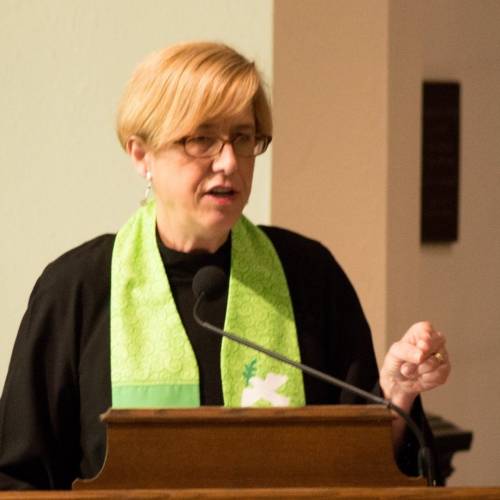The power of questions
Leaders don’t have to have all the answers
By Susan Rothenberg

It took me a while to realize that the dumbest question I could ask either of my children is, “How was school today?”
If you’re a parent, you already know how a child usually responds: “Fine.”
The caring, concerned mom (that’s me) replies, “That’s it? Fine?”
At which point, my dear mumbling child, who has not looked up from the phone in his hands, walks right by me to get a snack.
I took this sad, sad situation on as a maternal challenge to come up with some better questions that might possibly result in something more substantial than a single syllable reply.
Some of my questions included:
“What was the best part of your day?”
“What made you sad or angry or bored?”
“Did you hear anything in class that surprised you? Or worried you?”
“Did you laugh today? What was funny? Or interesting?”
Sometimes my question evoked a reply beyond, “fine,” but not always. Sometimes a regular school day really is just fine. Sometimes the child just doesn’t feel like talking. Sometimes the mother doesn’t feel like having a conversation about algebra.
To be truthful, I never feel like having a conversation about algebra
By asking better questions, however, at least I communicate to my child that I am interested. When I ask a thoughtful question, my child knows I am curious and ready to listen. If I’m really lucky, I stumble upon a good question that tricks a sullen teenager into to an actual conversation!
In my roles as a parent, a partner, and as a church leader, I have observed that the right question can open up space for a conversation that matters — a conversation that creates community, deepens relationships, and opens up new possibilities.
In case you haven’t noticed, Jesus loved to ask questions. He asked questions all the time, sometimes much to the annoyance of the people around him. I think Jesus did this not because he was testing people or looking for a “correct” answer (that was the goal of the Pharisees and Sadducees), but because his questions helped people reach a deeper level of understanding of who Jesus was and what God was up to through him. Think about the sorts of questions Jesus asked:
Do you want to be made well?
What are you looking for?
Do you love me?
Where is your faith?
Why did you doubt?
Why are you afraid?
Who do you say I am?
Why are you crying?
Every question Jesus asked was an invitation for the community to engage more fully with him and with one another in building the Kingdom of God. Every question we ask as we do our work in the church should have a similar goal – to build community, deepen our faith, and open up space for something new to happen.
In interactions with churches and their leadership, my Unglued Church colleagues and I try to initiate the kinds of conversations that people are not used to having by helping them ask new questions about who they are and who God is calling them to be.
The questions we ask focus upon:
Possibilities, not problems. How much of our time is spent on putting out the proverbial “fires” of communal life instead of asking questions about God’s work in our midst and how God is inviting us into new ways of being God’s church?
Gifts and abundance from God, not scarcity. How many of our questions focus on the need for more people/money (and how to get them) as opposed to trusting that God has provided us with everything we need to fulfill God’s purposes?
Making room for risks and mistakes instead of assigning blame. Do we make space for individuals to try something new, knowing even our most miserable failures can be transformed by the Holy Spirit into goodness? Do our questions focus on what is meaningful as opposed to what is measurable?
Caring for the whole community instead of individual interests. Do we ask questions about what benefits the community, even at the risk of alienating some who may not agree with our decisions? Do we go to the places where God is calling us instead of following our own interests?
Recognizing and lifting up the Holy Spirit at work in the entire community. Do we ask one another how the Spirit’s work is evident in our midst? Do we deliberately attend to the voices of those at the margins and ask how things look from their perspective?
Being an effective church leader once meant knowing all the things, solving all the problems, and providing all the answers to every vexing question. Leaders who decide to become a convener of meaningful conversations prompted by thoughtful questions, will find their efforts resisted at first. People may even say, “What good are you if you won’t tell us what to do?”
Gulp.
As leaders, we don’t much like admitting we don’t know all the things. Even though I know better, it pains me to admit I can’t solve all the problems and provide all the answers.
Yet, it is only in my deepest place of unknowing, and my willingness to live into and wrestle with all the questions, the Holy Spirit does her best work.
What new questions does your community need to be asking? What transformative conversations should you, as a leader, be convening?
 Susan Rothenberg is is a question asker with the Unglued Church Project. She’s an at-large member of Pittsburgh Presbytery. Formerly, she has served as pastor to a small church in Pittsburgh, and currently co-moderates the presbytery’s Commission on Ministry. Prior to entering ordained ministry, she worked in marketing, advertising and public relations for companies in Baltimore and Pittsburgh.
Susan Rothenberg is is a question asker with the Unglued Church Project. She’s an at-large member of Pittsburgh Presbytery. Formerly, she has served as pastor to a small church in Pittsburgh, and currently co-moderates the presbytery’s Commission on Ministry. Prior to entering ordained ministry, she worked in marketing, advertising and public relations for companies in Baltimore and Pittsburgh.